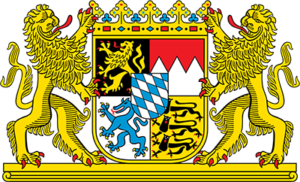Patrick Cramer appointed new President-elect of the Max Planck Society as of June 2023
From 2001 to 2014, Cramer held a professorship in biochemistry at Ludwig Maximilian University in Munich. During this time, he served as Director of the Munich Gene Centre and as Dean of the School of Chemistry and Pharmacy, and he was responsible for the construction of the Research Centre for Molecular Biosystems.
June 2022

© Max-Planck-Gesellschaft / David Ausserhofer
Patrick Cramer
“I am delighted to return to Munich as President of the Max Planck Society. I will make use of my experiences collected at various scientific institutions to promote cutting-edge research in Germany.”
Patrick Cramer
At its meeting on 23 June 2022 in Berlin, the Max Planck Society’s Senate unanimously appointed Patrick Cramer as new President-elect of the Max Planck Society for the term of office from 2023 to 2029. The 53-year-old chemist and molecular biologist currently serves as Managing Director at the Max Planck Institute for Multidisciplinary Sciences in Göttingen. He will take over the role from Martin Stratmann in June 2023 in Göttingen, where the MPG was founded, on the occasion of the 75th anniversary of the Max Planck Society. Stratmann was at the helm of the Max Planck Society for nine years and had indicated that he would not complete a full second term when he was re-elected in 2019.
Patrick Cramer has been a Scientific Member of the Max Planck Society and a Director at the Max Planck Institute for Multidisciplinary Sciences (formerly the Max Planck Institute for Biophysical Chemistry) since 2014. Cramer enjoys the highest scientific reputation and has received a large number of recognitions, including the Gottfried Wilhelm Leibniz Prize of the German Research Foundation in 2006, the Ernst Jung Prize for Medicine in 2009, three ERC Advanced Investigator Grants in 2010, 2016 and 2020, and the Louis Jeantet Prize for Medicine in 2021. Cramer is a member of the German National Academy of Sciences Leopoldina as well as the European Molecular Biology Organization (EMBO) and, since 2020, also of the US National Academy of Sciences (NAS).
He studied chemistry at the universities of Stuttgart and Heidelberg, conducted research internships at Bristol and Cambridge in England, and graduated in 1995. Cramer then carried out his doctoral research at the European Molecular Biology Laboratory (EMBL) in Grenoble, France. From 1999 to 2001, he conducted postdoctoral research at Stanford University in the USA in the laboratory of the later Nobel Laureate Roger Kornberg. From 2001 to 2014, Cramer held a professorship in biochemistry at Ludwig Maximilian University in Munich. During this time, he served as Director of the Munich Gene Centre and as Dean of the School of Chemistry and Pharmacy, and he was responsible for the construction of the Research Centre for Molecular Biosystems. “I am delighted to return to Munich as President of the Max Planck Society. I will make use of my experiences collected at various scientific institutions to promote cutting-edge research in Germany”, Cramer stated.
Cramer has made significant contributions to the development of the life sciences, both through his own research and by mentoring and promoting young scientists. He was able to elucidate the three-dimensional structure of one of the largest enzymes in the cell nucleus, RNA polymerase. Based on this work, his team could decipher the mechanisms of gene transcription. During this copying process, living cells create copies of their genes, which then serve as building plans for the production of proteins. Shortly after the outbreak of the Covid-19 pandemic, Cramer and his group visualized how the coronavirus copies its genetic material. The team also succeeded in clarifying how the Covid-19 drugs remdesivir and molnupiravir intervene in this copying process.
Patrick Cramer has served the community on various national and international committees. As chairman of EMBL Council he has gained experience in international science policy. He also served as chairman of the Perspectives Commission of the Max Planck Society’s Biology and Medicine Section. Cramer was unanimously proposed by the Presidential Search Committee headed by Andreas Barner, Vice President of the Max Planck Society. “Cramer has not only a brilliant scientific record that has been recognized by numerous awards, he also brings with him extensive expertise from university self-governance and a number of differing organizations, and thus the management skills required to lead a scientific organization on the scale of the Max Planck Society”, Barner stated in the Senate.



